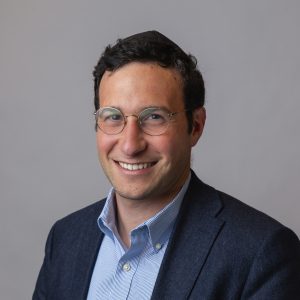EMPLOYEE BENEFITS
Employee Benefits Study Illustrates the Range of Effects from the Pandemic
Viewpoints from Adam Okun
In speaking with employees and colleagues over the last year, one of the things that has most caught my attention is how inconsistent the effect of the pandemic has been on different cohorts. Initially, as schools and businesses shut down, many young families struggled with the pressures of balancing work with childcare. Service industry employees fretted about their paychecks. Aged employees enjoyed the additional time won from the vanishing commute but were more fearful of illness. Younger employees with white-collar jobs and without families may have found comfort in the stability and quiet in their apartments, though some no doubt missed the social experiences city life had previously offered.
MetLife recently released its annual Employee Benefit Trends Study and discovered that more than half of employees in their twenties now expressed higher satisfaction with work-life balance than they had before the pandemic. It’s baby boomers who have seen the greatest decline in “holistic wellbeing,” which is described as including financial, physical, mental and social health. The primary issues contributing to this degradation of wellbeing were boundary-setting issues and the loss of casual “water cooler” interactions.
It is well established that happy and healthy employees are the most productive, and the results of the MetLife study dramatically shift the modern benefits conversation from copays, deductibles and contributions to mental health and resiliency. Indeed, we’ve seen many of our clients largely preserve their traditional medical programs while some have gone all-in on mental health programming and encouraging a greater focus on paid time off.
The post-pandemic workforce will be different from the one we knew only a year ago.
And the psychological toll has yet to be determined as 25% of employees consider quitting their jobs. Business leaders and human resource executives who have taken the time to understand their workforce and been sensitive to the unique needs of its diverse population will emerge as the winners.
See How A&E Firms are Addressing Mental Health in our mental health employer webinar on April 29
Request a recording of A Mental Health Playbook for Law Firms in 2021
View our Wellness & Health Management Insights
EPIC offers these opinions for general information only. EPIC does not intend this material to be, nor may any person receiving this information construe or rely on this material as, tax or legal advice. The matters addressed in this article and any related discussions or correspondence should be reviewed and discussed with legal counsel prior to acting or relying on these materials.
Related Content
Products
Employee Benefits Consulting
Our dedicated benefits team is focused on delivering better outcomes – to both your benefits program and ...
Products
Wellbeing & Health Management
Our consultants help you create a strategy around health management that will impact your culture and your ...
Products
HR Technology Solutions
From advising startups on how to build a solid Human Resources (HR) infrastructure, to consulting with ...



